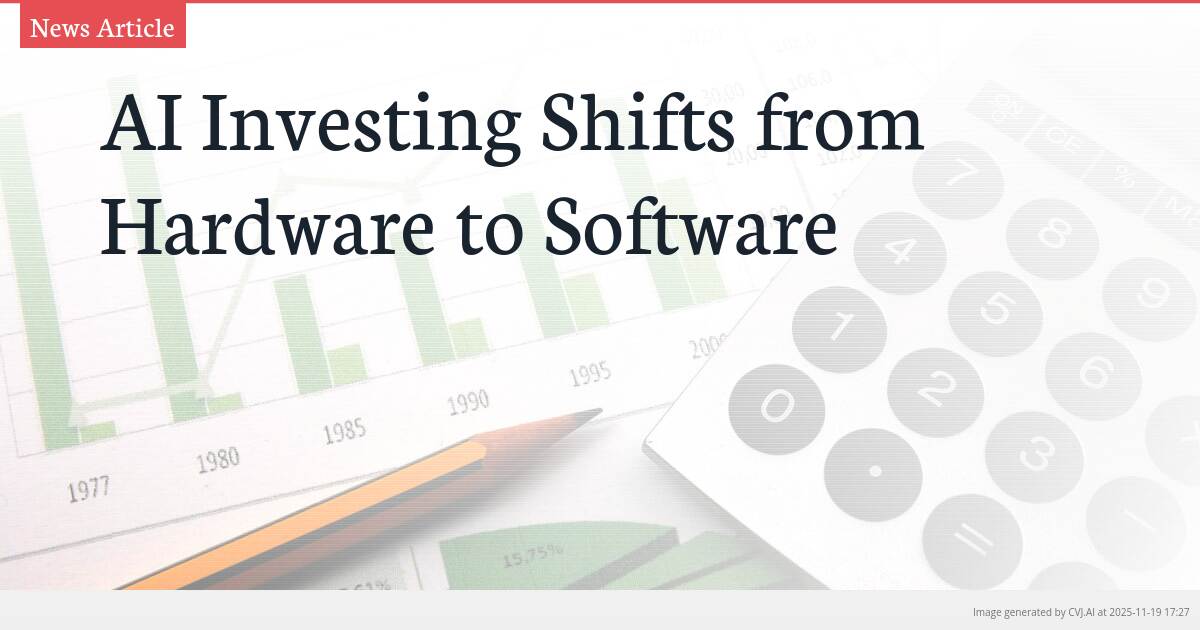Introduction
While semiconductor stocks like Nvidia have dominated early AI investing, the focus is now shifting toward software opportunities. This evolution signals a maturing market where investors are looking beyond hardware components. Exchange-traded funds are emerging as key vehicles to capture this broader AI ecosystem as artificial intelligence transitions from foundational infrastructure to application-layer innovation.
Key Points
- Semiconductor companies, particularly Nvidia, dominated the early stages of AI investment
- The AI investment landscape is expanding beyond hardware to include software applications
- ETFs provide diversified exposure to the broader AI ecosystem as the market matures
The Hardware Foundation: Semiconductors Lead Early AI Charge
The initial phase of artificial intelligence investing has been overwhelmingly dominated by hardware companies, with semiconductors serving as the fundamental building blocks of the AI revolution. Nvidia (NVDA) has emerged as the quintessential AI stock, becoming the first name that comes to mind for many investors when considering artificial intelligence exposure. This hardware-centric focus reflects the essential nature of processing power in training and running complex AI models, where advanced chipsets form the backbone of computational requirements.
Market participants with experience in technology cycles recognize this pattern as typical of emerging technological paradigms, where infrastructure investments precede application development. The semiconductor industry’s dominance in early AI investing mirrors similar patterns seen during the internet boom, where networking equipment and server manufacturers initially captured most of the investment attention before software and services companies emerged as the ultimate value creators. This hardware-first phase has created tremendous wealth for investors in semiconductor stocks, particularly those who identified the AI potential early.
The Software Shift: AI's Next Investment Frontier
As the AI market matures, investment opportunities are expanding beyond hardware components to include software applications and platforms. This transition represents a natural evolution in the technology adoption curve, where foundational infrastructure gives way to value-creating applications that leverage the underlying hardware capabilities. The shift from hardware to software in AI investing signals that the market is moving beyond basic infrastructure development toward practical implementation and commercialization.
The software layer of AI investing encompasses a diverse range of opportunities, including AI-powered enterprise applications, machine learning platforms, data analytics tools, and industry-specific AI solutions. These software companies are positioned to capture value by solving real-world business problems and creating new revenue streams through AI-enabled products and services. As AI technology becomes more accessible and standardized, the competitive advantage is shifting from who has the best chips to who can build the most effective applications and user experiences.
This software-focused phase of AI investing reflects the technology’s increasing integration into mainstream business operations and consumer products. Companies that can successfully deploy AI to improve efficiency, enhance customer experiences, or create entirely new business models are becoming increasingly attractive to investors seeking exposure to the next wave of AI-driven growth.
ETF Strategies for Broad AI Exposure
Exchange-traded funds are emerging as crucial vehicles for investors seeking diversified exposure to the expanding AI ecosystem. The Invesco QQQ Trust (QQQ) represents one such option that provides access to a broad range of technology companies, including both hardware manufacturers and software developers involved in artificial intelligence. This diversified approach helps investors capture the full spectrum of AI opportunities while mitigating the risks associated with single-stock investments.
ETFs offer particular advantages in the rapidly evolving AI landscape, where identifying long-term winners can be challenging even for experienced investors. By providing exposure to multiple companies across the AI value chain, these funds allow investors to participate in the overall growth of artificial intelligence without needing to predict which specific companies will ultimately dominate the market. This approach is especially valuable during transitional periods, such as the current shift from hardware to software focus, where investment leadership may change as the technology matures.
The availability of ETF options for AI investing also makes the theme accessible to a broader range of investors, including those who may lack the technical expertise or research resources to analyze individual AI companies. As the artificial intelligence investment thesis continues to evolve from its hardware-centric beginnings to encompass software and applications, ETFs provide a practical tool for maintaining exposure to the entire ecosystem while adapting to changing market dynamics.
📎 Source reference: etftrends.com

